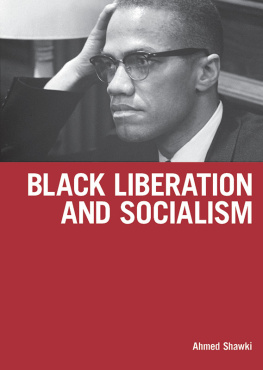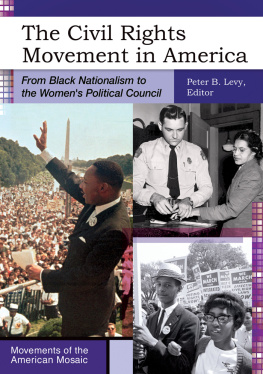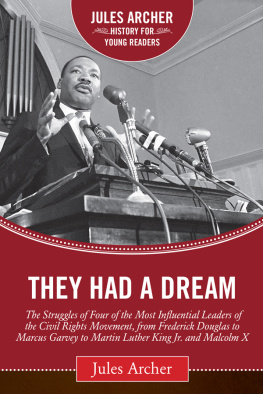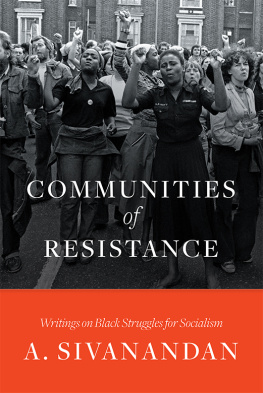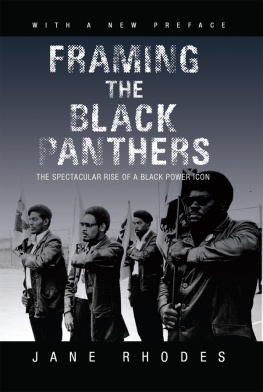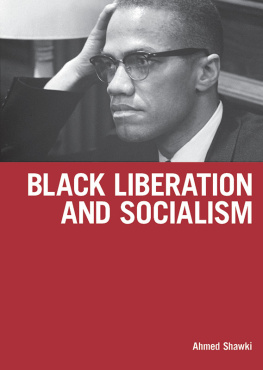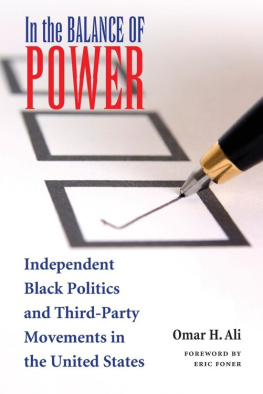About Haymarket Books
Haymarket Books is a nonprofit, progressive book distributor and publisher, a project of the Center for Economic Research and Social Change. We believe that activists need to take ideas, history, and politics into the many struggles for social justice today. Learning the lessons of past victories, as well as defeats, can arm a new generation of fighters for a better world.
We take inspiration and courage from our namesakes, the Haymarket Martyrs, who gave their lives fighting for a better world. Their 1886 struggle for the eight-hour day, which gave us May Day, the international workers holiday, reminds workers around the world that ordinary people can organize and struggle for their own liberation. These struggles continue today across the globestruggles against oppression, exploitation, hunger, and poverty.
Also from Haymarket Books
Subterranean Fire:A History of Working-Class Radicalism in the United States
Sharon Smith This accessible, critical history of the U.S. labor movement examines the hidden history of workers resistance from the nineteenth century to the present. ISBN 193185923X
The Communist Manifesto: A Road Map to Historys Most Important Political Document
Karl Marx and Frederick Engels, edited by Phil Gasper Includes the full text of the Manifesto , with commentaries, annotations, and additional works by Marx and Engels. ISBN 1931859213
Literature and Revolution
Leon Trotsky, edited by William Keach A new, annotated edition of Leon Trotskys classic study of the relationship between politics and art.
ISBN 1931859213
Women and Socialism: Essays on Womens Liberation
Sharon Smith The fight for womens liberation is urgentand must be linked to winning broader social change. ISBN 1931859116
The Meek and the Militant: Religion and Power Across the World
Paul Siegel Examines the historical roots of religion around the world, it origin and persistence, and how it has acted as a bulwark of the social order, but also as a revolutionary force. ISBN 1931859248
Order these titles online at www.haymarketbooks.org or call 773-583-7884. Distributed to the trade by Consortium Book Sales and Distribution.
2006 Ahmed Shawki
Published in 2006 by Haymarket Books
P.O. Box 180165 Chicago, IL 60618
773-583-7884
www.haymarketbooks.org
ISBN 978-1-60846-061-8
Cover design by Josh On and Amy Balkin
Cover photograph:Malcolm X waits at Martin Luther King press conference, March 26, 1964. Courtesy Library of Congress
This book has been published with the generous support of the Wallace Global Fund.
Library of Congress Cataloging-in-Publication Data is available from the publisher
10 9 8 7 6 5 4 3
Acknowledgments
This book has been a long time in the making, and would not have been possible without the contributions of many people who helped improve the manuscript. I owe them special thanks. I am, of course, responsible for any errors that remain. In particular, I want to thank: Anthony Arnove, Paul DAmato, Lance Selfa, Lee Sustar, Keeanga-Yamahtta Taylor, Alan Maass, Joel Geier, Sharon Smith, Julie Fain, Sherry Wolf, Jessie Kindig, Dao X. Tran, Tristin Adie, and Eric Ruder.
Introduction
Hurricane Katrina, which hit the Gulf Coast at the end of August 2005, left areas of Mississippi, Louisiana, and Alabama devastated. Katrina exposed the priorities of the U.S. government, as thousands of people were abandoned to fend for themselves. Hurricane Katrina also exposedor rather, exposed againthe simple fact that African-Americans in the United States are the victims of deeply rooted racism. As the images of devastation and desperation were broadcast across the country and around the world, the chief of the U.S. governments agency charged with dealing with such disasters, the Federal Emergency Management Agency, blamed the victims of the hurricane for the situation they were in. After all, argued Department of Homeland Security Secretary, Michael Chertoff, they should have left town as advised by local authorities. Leaving aside that evacuation orders went out late, the simple fact that a good portion of New Orleans poorlargely Blackdidnt have the means to leave town, or had nowhere to go, was not a matter of concern. The message being sent by the Bush administration was clear: If youre poor and Black you are plain out of luck. You are not a priority.
Less than a month later, at a mass demonstration of opposition to war and the occupation of Iraq, a Black woman held up a sign that evoked the now well-known phrase used by Muhammad Ali, the heavyweight boxing champion. When asked by a reporter why he was applying for conscientious objector status instead of going to fight the U.S. war against Vietnam, Ali replied, I aint got no quarrel with them Viet Cong. The sign held at the antiwar demonstration in September 2005 read: No Iraqis left me on a roof to die. This woman was not alone in making the connections among the unnatural effects of Hurricane Katrina, the priorities of the system, and the war in Iraq. Many resources that could have been mobilized to cushion the impact of Katrina were not available because they were divertedfunds, equipment, and peopleto the war and occupation of Iraq. Thousands if not millions understood what many signs at the September 2005 antiwar demonstration spelled out, Make levees, not war.
With their disgraceful mishandling of the aftermath of Katrina, George Bush and his administration stood naked in front of the world. This has fuelled a tremendous anger already brewing in the United States against the way this society worksor doesnt for the majority of people. As many writers have suggested, it is a grave mistake to think that U.S. society is stable, or that the promise of neoliberalism is the solution for most people. The United States is headed for an inevitable and tumultuous conflict.
And as in every other period of radicalization in the past, Blacks will be at the heart of the effort to change the United States. The aim of this book is twofold: (1) to give an overview of some of the main ideological and political currents in the struggle for Black liberation in the United States; and (2) to argue the case that both historically and in the future, socialist ideas and organization are an integral part of this struggle. In todays political climate, many may find this idea untenable. But it is irrefutable that the United States has gone through waves of radicalization on a mass scalewhen millions of people showed their opposition to the existing system and how it is run. In the late 1960s, radical politics, including Marxism, were integrally connected to the movements for social change in the United States. Key figures and organizations in the Black freedom struggle identified themselves with some form of socialist or Marxist politics. And the Black struggle had profound effects on U.S. society.
The mass mobilizations of the late 1950s and 1960s to end segregation in the South helped break the stranglehold of McCarthyism and conservatism that dominated U.S. politics. The civil rights movement smashed Jim Crow lawsthe apartheid-like segregation laws introduced at the turn of the centurythat denied Blacks the most basic rights. The Black Power movement of the late 1960s represented a further radicalization of the movement involving hundreds of thousands of activists, Black and white, in political activity and mobilization.
All kinds of political ideas flourished during this period. For the first time since the demise of Marcus Garveys Universal Negro Improvement Association (UNIA) in the 1920s, Black nationalist ideas gained a hearing on a mass scale. By the late 1960s, sections of the movement underwent an even greater radicalization. The Black Panther Party and the League of Revolutionary Black Workers, for example, spoke of the need for revolution and declared themselves Marxist-Leninist organizations. It was commonly asserted, in however partial, confused, or ill-conceived ways, that reformism was a dead end and that only revolutionary politics could achieve Black liberation. Whatever weaknesses the movement had, it remains a tremendous source of inspiration and holds many lessons for us today.
Next page
